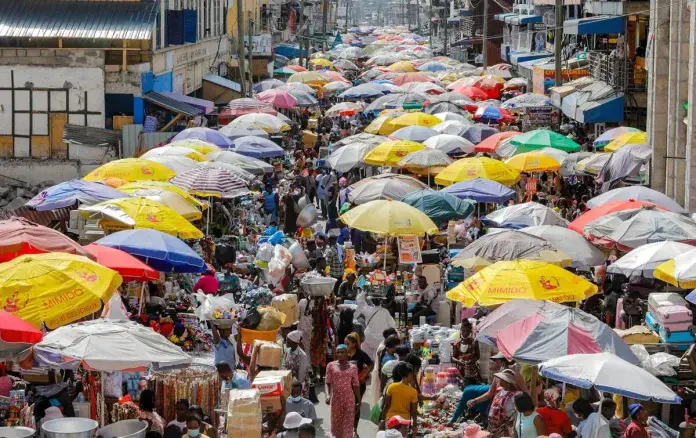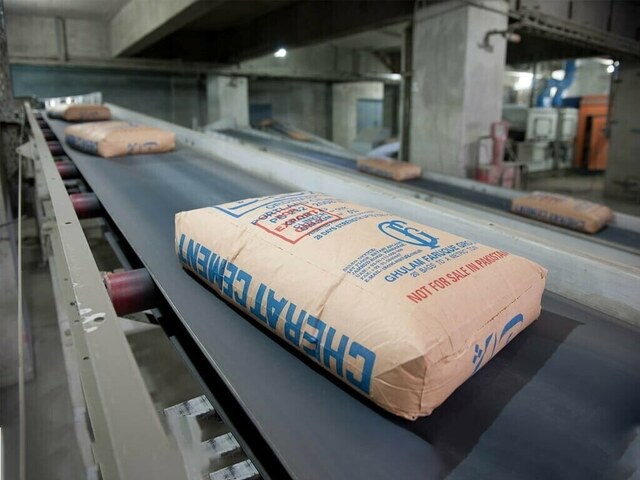Copyright ghanamma

Ghana’s informal cross-border trade reached GH¢7.4 billion in the fourth quarter of 2024, with cooking oil, rice, and livestock accounting for over GH¢700 million of imports, according to groundbreaking data from the Ghana Statistical Service (GSS) that finally quantifies an economy long operating in the shadows. The three-month survey, which monitored 321 border points across ten regions, found that cooking oil topped informal imports at GH¢270 million, followed by mattresses at GH¢171 million, rice at GH¢143 million, and livestock at GH¢159 million. Together, these commodities represent 4.3 percent of Ghana’s total national trade for the period, a figure that’s reshaping how policymakers understand the country’s economic landscape. What makes these numbers particularly striking isn’t just their size, but what they reveal about daily life along Ghana’s porous borders. Food products dominated both sides of the ledger, making up nearly half of all informal imports and 41 percent of exports, confirming what border communities have known for generations: informal trade isn’t just business, it’s about keeping families fed and local economies breathing. Dr. Alhassan Iddrisu, the Government Statistician, emphasized that measuring informal trade systematically strengthens the foundation for better economic planning. “This data gives visibility to traders and transporters who sustain our local economies but have long operated in the shadows,” he said during the report’s presentation. “We can now put real value to the movement of goods that keep border economies alive.” The report paints a vivid picture of how trade flows across Ghana’s borders with Togo, Burkina Faso, and Côte d’Ivoire. Informal trade accounted for 61.2 percent of total commerce with Togo, 55.7 percent with Côte d’Ivoire, and 37.1 percent with Burkina Faso, demonstrating just how dominant these unofficial channels have become in regional commerce. Geography tells its own story in the data. Upper East Region emerged as the dominant corridor with GH¢1.27 billion in informal exports, roughly fifteen times higher than Savannah Region’s GH¢82.9 million. Paga retained its position as Ghana’s busiest informal trade route, recording GH¢168.5 million in exports and GH¢116.1 million in imports. The human element of this massive economy shouldn’t be overlooked. Across Ghana’s borders, hundreds of traders, predominantly women in certain regions, move goods daily using whatever transport they can access: tricycles, bicycles, motorbikes, even canoes. Women represented 41.3 percent of import transporters, particularly in the Savannah, Northern, and Western Regions, while men dominated export transport at 65.7 percent. Their transactions might not pass through formal customs gates, but they’re keeping shops stocked, markets vibrant, and families employed in areas where formal job opportunities remain scarce. For many border communities, this informal economy represents the difference between economic participation and isolation. Yet the report doesn’t shy away from highlighting persistent challenges that push traders to operate outside formal systems. Limited access to credit, harassment at border posts, and lack of awareness about trade documentation continue to plague those working in this space. Poor storage facilities and inadequate infrastructure compound these difficulties, creating conditions where informality becomes not a choice but a necessity. The trade balance also reveals interesting patterns, with Ghana recording a surplus of GH¢576.4 million with Burkina Faso and GH¢377.6 million with Côte d’Ivoire, but running a deficit of GH¢539.3 million with Togo. These figures suggest that while Ghana exports significantly to its northern and western neighbors, it relies heavily on imports from the east. The GSS recommended several measures to support informal traders, including simplifying registration processes, providing access to microcredit, offering training in record-keeping and product quality standards, and improving border infrastructure. They’re also calling for enhanced regional cooperation and increased domestic production of heavily imported items like cooking oil, rice, and mattresses to reduce import dependency. The timing of this data collection couldn’t be more relevant. GSS officials emphasized that integrating informal trade data into national statistics will be crucial for policy design under the African Continental Free Trade Area (AfCFTA), helping Ghana unlock the full potential of what some economists are now calling the country’s “invisible economy.” For policymakers, the survey provides concrete evidence of an economic reality that’s been hiding in plain sight. Without this informal trade, many border communities would face economic isolation, yet until now, no one could quantify its actual contribution to Ghana’s economy or design policies that properly support it. The GSS plans to conduct these surveys regularly, working with customs authorities and local governments to track informal trade patterns over time. This isn’t just about counting transactions anymore; it’s about recognizing that billions of cedis changing hands across unofficial routes represent small goods with big impact. As Ghana positions itself within the broader West African economic community and prepares for deeper integration under AfCFTA, understanding these informal networks becomes essential. The challenge now isn’t whether to recognize this trade, it’s figuring out how to support it without strangling the flexibility and accessibility that makes it work for thousands of small-scale traders. For the woman crossing into Togo with cooking oil on her bicycle or the farmer bringing livestock from Burkina Faso, these statistics represent validation. Their work matters to Ghana’s economy, and now the numbers finally prove it.



